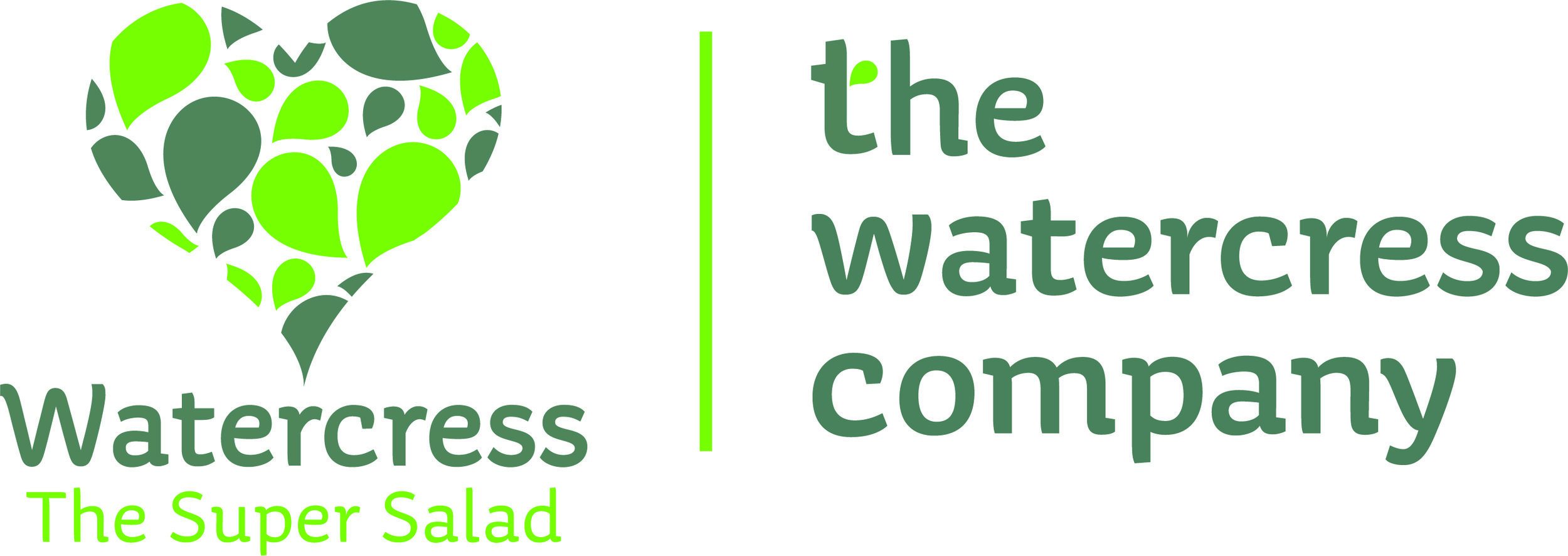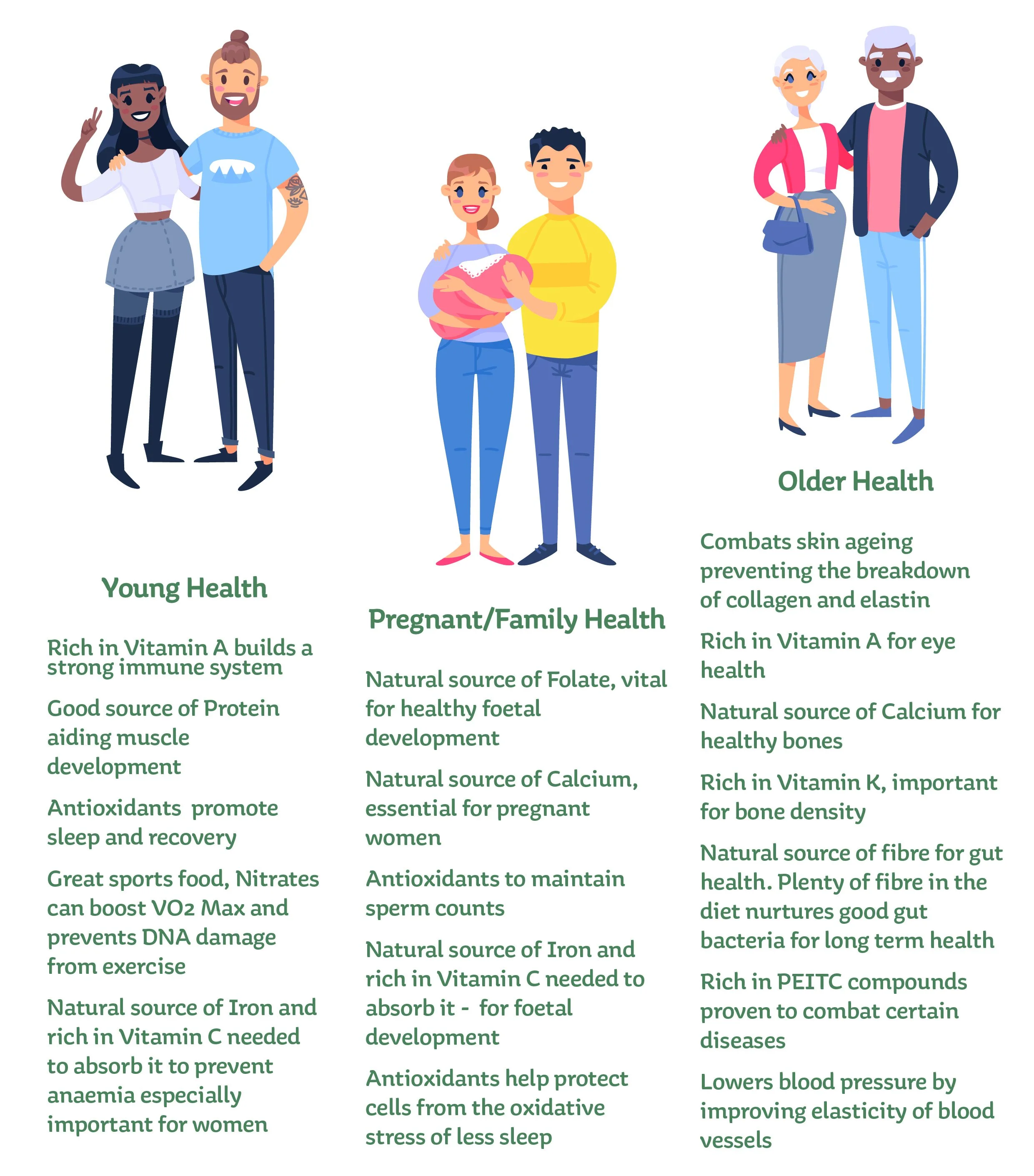How watercress can support lifecycle nutrition
The mix of nutrients and phytochemicals found in watercress make it a valuable food that can help to support the body's natural defences and contribute to health and well-being throughout life.
As a salad vegetable it can contribute to the nutritional benefits through daily consumption. A recent analysis found that salad consumers tended to have more favourable intakes of vitamins C and E, folate and carotenoids and consistently higher serum values of these nutrients (Reference 88).
All essential nutrients support growth and development (Reference 7). Raw watercress is rich in vitamins A (as beta carotene), vitamin C and vitamin K1, and is a source of folate, vitamin B6, calcium and iron. Calcium is important to build and maintain strong bones, and vitamin K contributes to normal bone structure. During pregnancy requirements increase for vitamins A and C. Folate is needed for the normal development of the neural tube so helping to prevent neural tube defects such as spina bifida. Folate also plays a role in maintaining blood and circulation.
Eating plenty of vegetables (around 5 portions daily), especially green leafy, yellow and cruciferous vegetables, has been associated with a slower rate of cognitive decline amongst people aged 65 or over (Reference 89).

